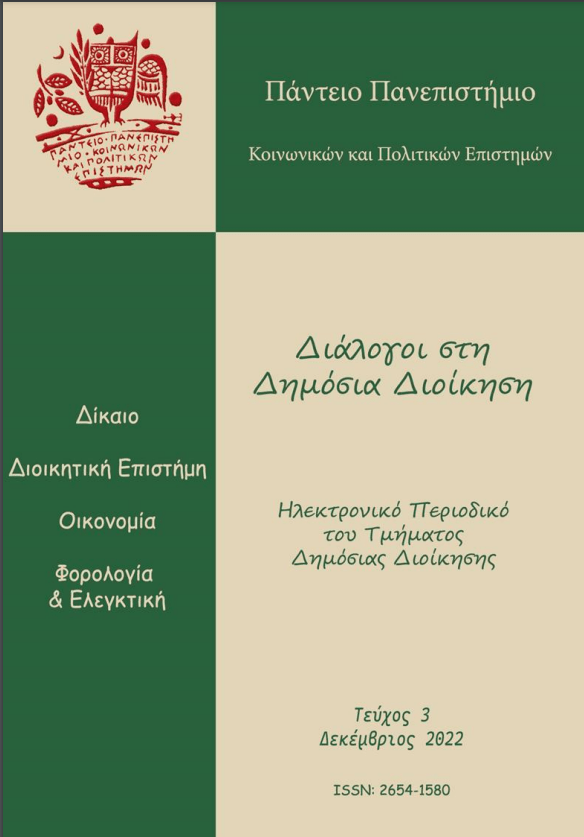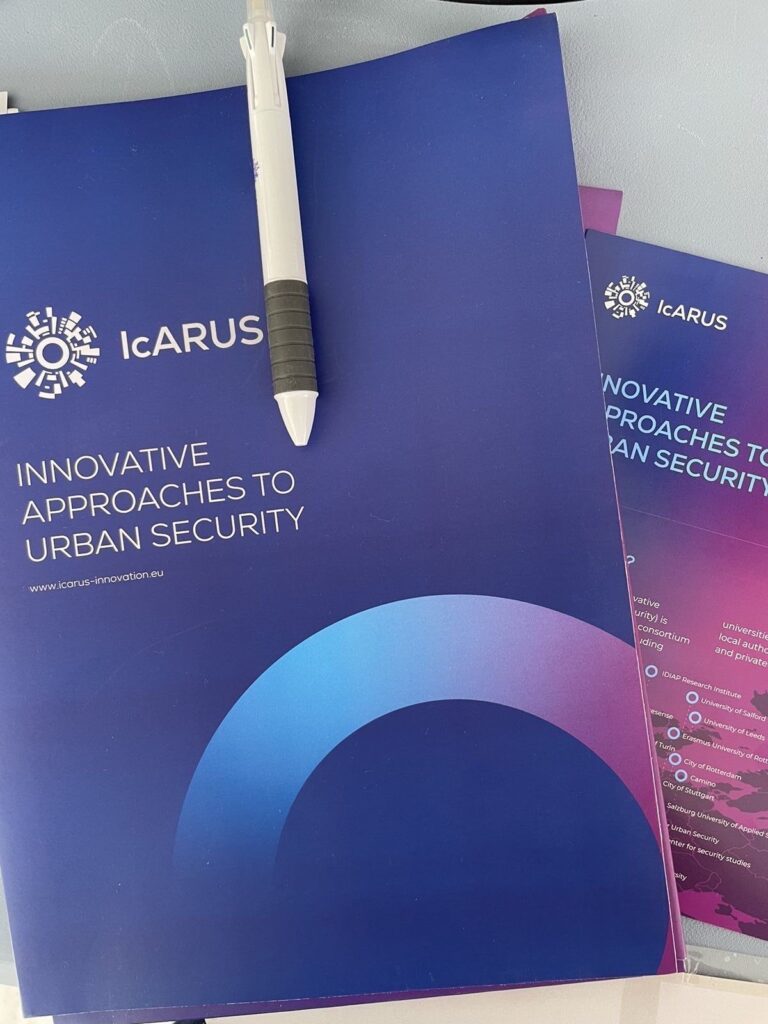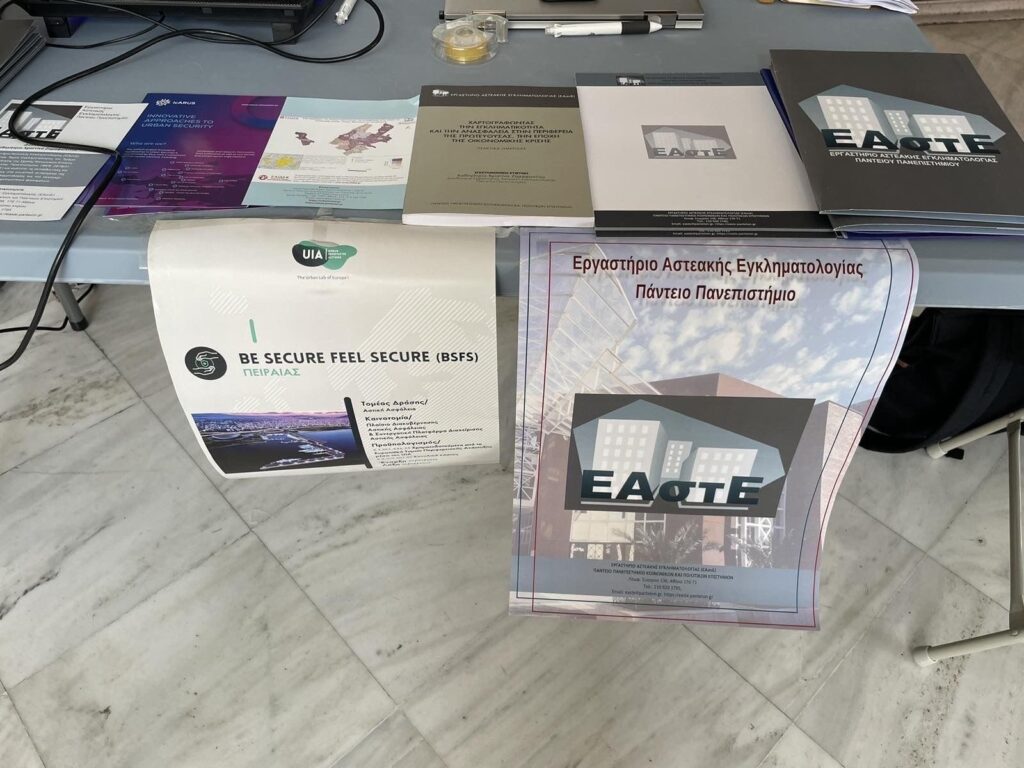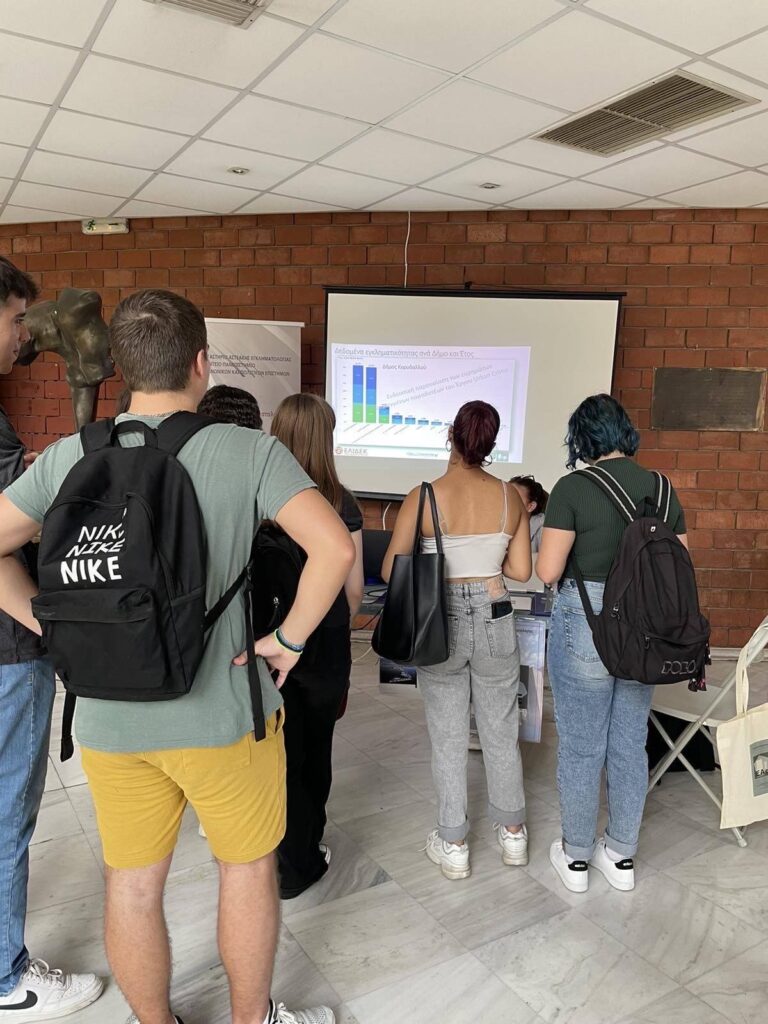Month: January 2024
News Update: Exploring Urban Safety through IcARUS Project
Check out the latest research on local crime prevention policies and quality of life in the paper “Local policies of crime prevention and quality of life” by Zarafonitou Ch., Karagiannidis Ch., Kontopoulou E. The study, enriched from its presentation at the “PUBLIC ADMINISTRATION AND THE ENVIRONMENT” conference, emphasizes the importance of decentralized prevention policies. Notably, the IcARUS Project is referenced, highlighting the project’s goals, objectives, and consortium. This research underscores the significance of community involvement and collaboration for urban safety, both internationally and in the European context.
Read the full paper here (available in Greek). Additional details on the research are available here


Exhibition on “Research at Panteion” in the framework of Freshmen Reception Week at Panteion University
On Wednesday, 11 October 2023, in the context of the Freshmen Reception Week, Panteion University organized a very interesting exhibition on “Research at Panteion” and the Laboratory of Urban Criminology of Panteion University -with its rich research work- actively participated. Representatives and collaborators of the Laboratory were present to provide information material and answer questions to those who visited the stand, while at the same time video material was shown on some of the research projects that were recently completed or were ongoing.
The Rector of Panteion University, Prof. Christina Koulouri and the Vice Rector of Finance Prof. Christos Papatheodorou, visited the stand and showed particular in interest in the Laboratory’s actions. The Laboratory’s team presented thoroughly the research projects that have been completed so far by the Laboratory and those that are still ongoing.
In this context the Laboratory team presented IcARUS Project (the objectives of the project, the methodology, the consortium and the participating cities, the ultimate goals and the main results so far). The team also gave IcARUS information material and pens to those who visited the stand.




Breaking New Ground: IcARUS Project to Unveil Innovations in Urban Security at Council for European Studies Annual Conference
In our pursuit of innovative, evidence-based, and human-centred approaches to urban security prevention, we are thrilled to announce the acceptance by the conference organisers of our plans to share IcARUS learnings at the Council for European Studies annual conference in July this year, in Lyon, France.
The University of York is delighted to have led on a collaborative bid for a special panel devoted to showcase the IcARUS project at this year’s conference. The panel brings together six consortium partners who will each provide a fascinating insight into their work on IcARUS, including: The University of York, The European Forum for Urban Security (Efus), The Centre for Security Studies at Hellenic Ministry of Citizen Protection (KEMEA), Erasmus University Rotterdam (EUR), Riga Municipal Police, and Stuttgart’s Inside Out e.V. The conference theme ‘Radical Europe: Violence, Emancipation and Reaction’ invites participants to speak to what ‘Radicality’ means to them; our panel will provide some of the first insights into the outcomes of IcARUS and how the project has strengthened our understanding of and approach to ‘Radicality’.
Focusing on one of the four main security priorities covered by the IcARUS project – namely the prevention of radicalisation leading to violent extremism – consortium members will provide first-hand insights into the innovative contributions to rethinking and adapting existing tools which are helping local security actors anticipate and better respond to security challenges. Following from an overview of the project, led by the University of York, Efus will begin our discussions by delving into the pivotal role of local authorities in addressing the complex issues of radicalisation and polarisation, shedding light on the effective interventions and strategies that local authorities can deploy. KEMEA will discuss the importance and process of co-creating, testing and validating tools for preventing radicalisation at the local level with end-users. This Design Thinking Methodology will be further elaborated by EUR who will speak to the importance of these locally-designed tools and their capacity to be transferable to other local contexts in the prevention of radicalisation. Our final two contributions are from two of our partner cities. Firstly, representatives from Riga will explore the future application of their tool to the realm of Incel culture as a form of Radicality. They will do this by sharing some of the key findings from their IcARUS tool which enables the collection and assessment of feelings of insecurity within local populations which they argue is a key step in preventing security challenges, such as radicality. Finally, Inside Out e.V. who are leading the development of the tool in Stuttgart will explore the application of the innovative tool ‘Trick17’, designed to increase resilience against the radicality of young people through magic shows.
The panel contributions will demonstrate how custom-made solutions to radicalisation have been developed, incorporating social and technological innovations, within IcARUS. They will posit the importance of preventative approaches informed by experience and academia, and the necessity of multi-stakeholder co-production, also exploring the challenges of these types of projects. The panel offers us an exciting opportunity to disseminate the findings of IcARUS with interested parties from across and beyond Europe. We look forward to utilising this opportunity to demonstrate the powerful impact our innovative tools to the urban security concern of Radicality can have.

subscribe to be the first to receive icarus news!
Know what we've been up to and the latest on the European urban security frame.








